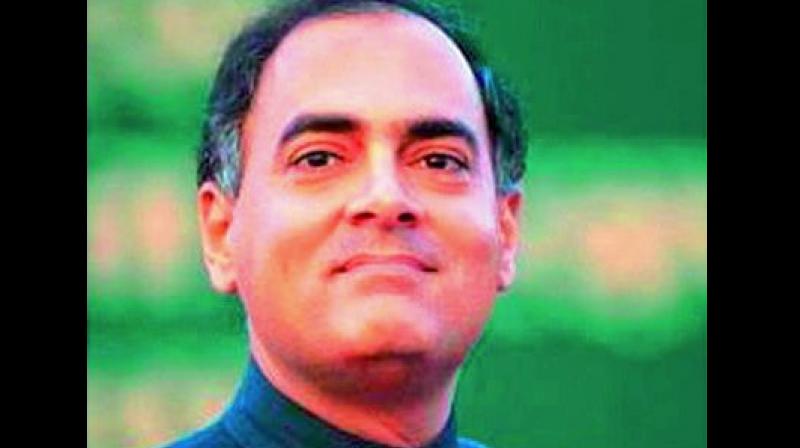Tamil Nadu Governor to decide on Rajiv Gandhi's killers assassination case
In its response the CBI said the role of Perarivalan in the conspiracy to kill Rajiv Gandhi was clearly established.

New Delhi: The Supreme Court on Thursday without granting any relief to the seven convicts in the Rajiv Gandhi assassination case, asked the Tamil Nadu Governor to consider the mercy petition submitted by A.G. Perarivalan, a life convict in December 2015.
With this observation a bench of Justices Ranjan Gogoi, Naveen Sinha and K.M. Joseph disposed of the Centre’s petition questioning the Tamil Nadu government’s proposal to release all the seven convicts viz Murugan, Santhan, Perarivalan (whose death sentence was commuted to life sentence) and that of Nalini, Robert Pius, Jayakumar and Ravichandran.
The bench disposed of the petition since the Centre told the bench that the Union home ministry had passed an order on April 18 and conveyed its decision to the Tamil Nadu government rejecting its proposal to grant remission and release of the seven convicts in the Rajiv Gandhi assassination case, who are in jail for the last 27 years.
The Centre told the apex court that it did not concur with the Tamil Nadu government’s proposal to release the seven convicts in the case, saying remission of their sentence will set a “dangerous precedent” and have “international ramifications”. It said the case involved the assassination of a former Prime Minister in a brutal manner in pursuance of a “diabolical” plot carefully conceived and executed by a foreign terrorist organisation.
When counsel Gopal Sankaranarayan submitted that the mercy petition of Perarivalan submitted in December 2015 has not been decided by the Tamil Nadu governor, the bench asked the Governor to take a final decision in this regard. In view of the liberty given by the court, window is now open for other six convicts to seek mercy before the Governor, which will be decided independently by him.
Perarivalan was charged with supplying a 9-volt battery, which was allegedly used for the belt bomb that killed Rajiv Gandhi and 14 others on the night of May 21, 1991 at Sriperumbudur in Tamil Nadu. A woman suicide bomber, identified as Dhanu, at an election rally, triggered the belt bomb.
Perarivalan in his petition said the only substantial overt act attributed to him was that of supplying two 9-volt Golden Power batteries, which was alleged to be used in the Improvised Explosive Device. The conspiracy in relation to the origin and make of the Improvised Explosive device would through much light in to the larger conspiracy. The CBI internal evidence shows that even if providing of the 9-volt batteries were true, the knowledge of the conspiracy cannot be attributed to the petitioner.
In its response the CBI said the role of Perarivalan in the conspiracy to kill Rajiv Gandhi was clearly established. It said the TADA court had noted that Perarivalan went to Jaffna in Sri Lanka during June 1990 along with Baby Subramanian to hatch the conspiracy.
Further his acquaintance with Murugan in Jaffna, his visit to Vellore Fort where LTTE cadres were lodged; removal of LTTE literature, pamphlets etc established his active participation. The TADA court had categorically held that Perarivalan was neck deep in conspiracy with one-eyed Sivarasan and others and had actively assisted in bringing about the conspiracy to a successful completion.
The CBI said Perarivalan was an electronic engineer and he knew that to explode IED power source would be 9-volt battery, which was ultimately used in exploding the device (belt bomb). The claim of Perarivalan that he was innocent and was not aware of the conspiracy to kill Rajiv Gandhi could not be accepted.

